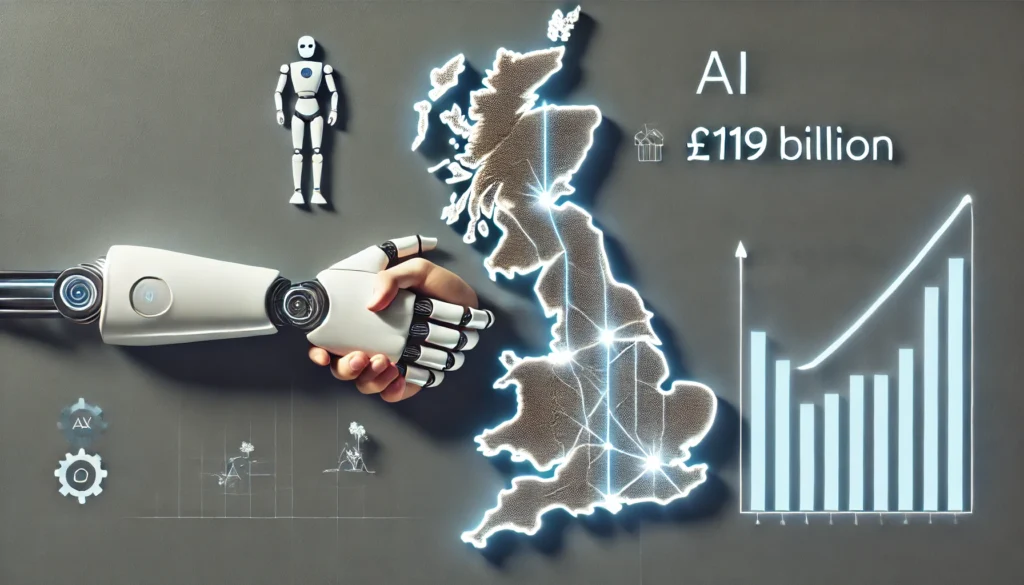UK-Canada AI Pact: Pioneering Shared Compute Resources for Technological Growth

In an age where technological advancements are key to global innovation, the United Kingdom and Canada have taken a bold step forward with a strategic AI compute agreement. This groundbreaking Memorandum of Understanding, inked by UK Technology Secretary Michelle Donelan and Canada’s Minister for Innovation, Science and Industry François-Phillippe Champagne, strengthens the collaborative ties in Artificial Intelligence research and development.
Having garnered wide interest across tech ecosystems, this agreement positions the two nations at the forefront of AI, emphasizing cheaper and more accessible high-powered computing resources—critical for the sophisticated demands of contemporary AI applications. As we pivot towards an AI-centric world, this accord is a game-changer for researchers and corporations striving to pioneer in areas such as biomedicine, while aligning with sustainable compute-sharing frameworks.
This move is more than just a bilateral agreement; it’s a reinforcement of a science and technology partnership with broad implications for innovation. With AI experts like Yoshua Bengio involved in discussions, and a hefty £350 million investment in collaborative AI and quantum technologies, the UK-Canada alliance is poised to inspire global AI advancements.
Stay tuned as we delve into the profound implications of this agreement, both for the seminal fields of AI and for broader research and innovation trajectories. Get to know how this UK-Canada accord is shaping the future of technology, global cooperation, and sustainable advancements, in this comprehensive piece crafted by Ryan Daws, a seasoned tech editor with a pulse on the latest tech trends and industry dynamics
The Strategic Importance of AI Compute Collaboration
In the realm of global technological advancement, access to potent computing resources is a cornerstone for breakthroughs in Artificial Intelligence. The new UK-Canada AI agreement signifies an understanding of this critical need and positions both nations as visionaries in fostering AI advancements. By prioritizing AI compute collaboration, the UK and Canada are not just sharing resources but are combining their strengths to address escalating compute demands necessary for AI’s advanced algorithms and massive datasets.
Bridging Research and Development in AI
AI researchers and developers often encounter limitations due to the lack of access to high-performance computing facilities. The UK-Canada AI compute agreement addresses this challenge head-on, promising to bridge gaps in research by offering more affordable, accessible compute power. This aspect of the agreement is particularly groundbreaking, as it lowers barriers for smaller institutions and companies, opening the door for a wider array of AI-driven innovations. The focus on shared research priorities like biomedicine can lead to significant strides in healthcare, amongst other domains, enhancing the quality of life and medical outcomes.
Facilitating a Sustainable Model of Compute-Sharing
The concept of sustainability in AI advancements is gaining traction as the environmental impact of large-scale computations becomes a concern. The UK-Canada AI agreement is forward-thinking in its intention to work on sustainable models for sharing compute capabilities. This initiative not only ensures that environmental footprints are minimized but also supports the vision of an ethical approach towards technology progression. The implementation of sustainable compute-sharing frameworks can set a global precedent, encouraging other nations to follow suit in responsible and eco-friendly technological growth.
Investing in Collaborative Technology Sectors
Beyond AI, the UK-Canada agreement underscores the importance of collaboration in other emergent technology sectors such as quantum computing, semiconductors, and clean energy. The financial investment earmarked for these collaborative efforts—£350 million—is a testament to the depth of the two countries’ commitment to driving innovation together. The impact of this investment extends to fortifying research, powering industrial partnerships, and laying the groundwork for next-generation technologies.
Empowering Global Science and Innovation Networks
The collaboration detailed within the AI compute agreement is about more than just shared technology; it’s about reinforcing a global network of science and innovation. By aligning resources and knowledge, the UK and Canada are crafting a template for international cooperation in the tech domain. This sort of partnership not only accelerates progress within the partnering nations but also has the potential to contribute to the global pool of scientific knowledge, benefiting a broader international community.
AI Expertise and Future Outlook
Discussions with leading AI experts, including Turing Award recipient Yoshua Bengio, emphasize the importance of the AI compute agreement in shaping the future of the field. Leveraging the knowledge and foresight of such pioneers ensures that the collaboration is built on a foundation of true expertise, which is essential for meaningful advancement. The UK-Canada coordination sets the stage for a dynamic, informed approach to AI development, with the promise of fostering groundbreaking research that could lead to an array of transformative technologies.
As we examine the profound implications of the UK-Canada AI compute agreement, we witness the weaving of technology, global cooperation, and sustainable innovation into a single, cohesive vision. This collaboration is not just a blueprint for international AI advancement, but also a compelling narrative of how like-minded nations can forge partnerships to harness the collective power of emerging technologies for the greater good.
In conclusion, the UK-Canada AI compute agreement marks a pivotal juncture in the tech world—ushering in a new era where international cooperation and high-powered computing converge to accelerate AI innovations. As the UK and Canada assert leadership in this field, this collaboration stands as a monument to their commitment to driving technological frontiers forward. Affordable, accessible computing resources are now more than ever within reach for a diverse range of researchers and innovators, democratising the potential for breakthroughs in critical areas from biomedicine to quantum computing.
This accord underlines not only the strategic importance of technology partnerships but also showcases a sustainable, ethical framework for the future of AI development. With a significant investment to catalyze progress and guidance from AI luminaries like Yoshua Bengio, this agreement is set to shape the trajectory of global innovation and research, paving the way for thriving tech ecosystems and powerful science networks.
The broader implications for sustainability, economic growth, and international collaboration cannot be overstated. As we emerge into an AI-centric future, the UK-Canada partnership exemplifies the transformative potential of tech alliances. By championing responsible advancement and shared expertise, the agreement is a bellwether for an interconnected world where technology enhances human potential and nurtures a healthier planet.
For industry observers, entrepreneurs, and scientists alike, the unfolding story of this UK-Canada union is one to watch closely. It is more than an agreement—it is a manifesto for the next wave of global tech evolution. Let us embrace this exciting chapter as the United Kingdom and Canada redefine what’s possible in the boundless realm of AI.















































































































